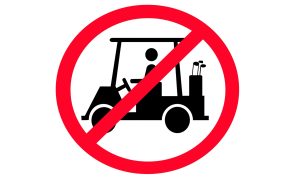Author: Luke Hasskamp
Two days before the FedEx Cup Playoffs—a federal court in San Francisco denied three players’ requests for an order allowing them to participate in the marquee event. Those three players—Talor Good, Hudson Swafford, and Matt Jones—had asked the court to immediately enjoin their recent suspensions, handed down by the PGA Tour, but District Court Judge Beth Labson Freeman denied the request, holding the players did not meet their legal and evidentiary burden to show that they would be “irreparably harmed” if barred from the sport’s end-of-season playoff series.
By way of background, the PGA has banned from PGA Tour events any player who chooses to participate in events held by rival upstart league LIV Golf.
The ban includes the FedEx Cup Playoffs—a three-tournament series to conclude the PGA Tour’s season. The top 125 tour players are eligible to participate in the playoffs, which represent a significant accomplishment and “gateway” for players. Not only is lots of money at stake in the playoffs themselves, but there are important implications for a player’s future career. After the playoffs, the top 30 players qualify for next year’s Tour Championship and all four Major Championships, while the top 70 players qualify for all Tour events.
Only three of the 11 plaintiffs in the PGA Tour lawsuit—Gooch, Swafford, and Jones—sought the temporary injunction (called a “TRO”) because these three would have otherwise qualified for the FedEx Cup Playoffs but for their suspensions. Indeed, when the players launched the lawsuit, Gooch was ranked 20th, Jones was 62nd, and Swafford was 63rd, all comfortably within required standings.
In considering a request for a TRO, courts generally consider four elements: (1) whether the players are likely to succeed on the merits; (2) whether the players are likely to suffer irreparable harm without injunctive relief; (3) whether the balance of equities tip in the players’ favor; and (4) whether the injunction is in the public interest. The players requesting the TRO needed to establish all four elements to be entitled to the relief.
In general, TROs are hard to get because courts are typically reluctant to grant quick, injunctive relief on a limited evidentiary record. And as to irreparable harm in particular, a loss of money by itself is not considered irreparable harm, meaning if money damages could make a party whole, injunctive relief is not appropriate.
Here, after a hearing lasting more than two hours, featuring extensive argument by attorneys for the players and the PGA Tour, the court found that the players failed to show that they would suffer irreparable harm without immediate injunctive relief.
Although Judge Freeman agreed that the FedEx Cup Playoffs were important, marquee events, she cited, on the other hand, the substantial money that the players were making as part of their contracts with LIV Golf, plus the fact that the players’ contracts with LIV Golf specifically contemplated they would lose significant money if they had to miss out on the FedEx Cup playoffs (and other PGA Tour events). The players understood that risk, and, indeed, it was part of their negotiations with LIV Golf—allowing them (arguably) to extract more money from LIV Golf because of the possibility of a PGA ban. Judge Freeman also noted that the players would make significantly more money as part of the LIV Golf series than they might make in the FedEx Cup playoffs. Thus, she could not see how the players would suffer irreparable harm.
The court largely ended its analysis there. But Judge Freeman added that her preliminary assessment was that the PGA Tour commissioner’s interpretation of the provisions addressing player suspensions appeared to be reasonable. There was some debate about whether the players’ suspensions should be stayed pending their internal appeal, and Commissioner Monahan concluded that no stay was necessary, which the players challenged.
Also, Judge Freeman noted that all her analysis was preliminary and was subject to change following additional evidence and argument.
One other interesting note: Judge Freeman offered the parties an accelerated trial schedule. She said that her typical schedule would delay the players’ trial until 2025, but Judge Freeman said she had a “window” in which it could hold the trial much earlier in June 2023. This is incredibly fast for federal antitrust cases, but Judge Freeman said she understood the importance of the case and her desire to help the parties get a timely resolution. But there would be no changes to the schedule once set, so the court cautioned the parties to think hard about whether they wanted to accept it. There would be no time for a motion to dismiss, but there would be a hearing on a motion for a preliminary injunction—to enjoin the players’ suspensions—possibly as early as the end of September.
Image by Mark Miller from Pixabay
 The Antitrust Attorney Blog
The Antitrust Attorney Blog



